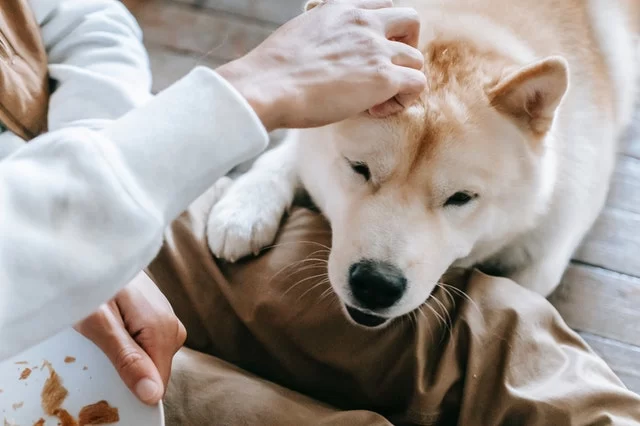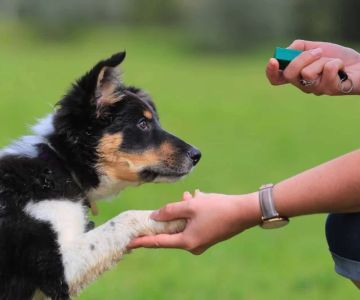Understanding Why Dogs Beg for Attention
As a dog owner, you’ve probably experienced the constant tug of your dog’s gaze, or worse, the persistent nudging and whining whenever you’re enjoying some quiet time. It’s almost as if your dog knows exactly when you’re trying to relax, and the moment you’re distracted, they take that opportunity to demand your attention. While it’s cute at first, it can quickly become frustrating if you don’t know how to address the issue. So, why do dogs beg for attention in the first place?
Dogs are social animals by nature. Unlike other pets, they thrive on companionship, interaction, and engagement. Begging for attention can stem from a variety of factors such as boredom, loneliness, or even a learned behavior. In some cases, dogs beg because they’ve associated certain behaviors with rewards—like when you give them treats or pet them when they nudge you. It’s important to understand the root cause to effectively address the behavior.
Common Reasons Behind Your Dog’s Begging
There are several reasons why your dog might be begging for your attention. Let’s explore a few of the most common reasons:
- Seeking affection: Dogs, especially those that are very attached to their owners, may beg simply because they want love and attention. This is especially true for breeds that are naturally more affectionate.
- Hunger or thirst: Sometimes dogs beg because they are hungry or thirsty. Even if you’ve just fed them, it’s possible they’re hoping for a little extra snack or are confused by your eating habits.
- Boredom: Dogs that aren’t mentally or physically stimulated often engage in begging as a way to get attention or create some sort of interaction. If your dog isn’t getting enough exercise, they may resort to begging to break up their monotonous routine.
- Learned behavior: If you’ve ever given your dog attention or treats in response to their begging, they may have learned that begging is an effective way to get what they want.
Practical Tips to Stop Your Dog From Begging
Now that we know the reasons behind your dog’s begging, it’s time to explore how to stop it. The key is consistency, patience, and a little bit of training. Here are some effective methods to help your dog break the habit of begging for attention:
1. Establish Clear Boundaries
One of the most effective ways to stop your dog from begging is to establish clear boundaries and stick to them. If your dog is constantly begging during mealtime or while you’re watching TV, it’s essential to let them know that this behavior is not acceptable. Consistency is the key here—if you give in to their demands even once, it can reinforce the begging behavior.
When your dog begins to beg, calmly ignore them. Don’t look at them, don’t speak to them, and don’t give in to their request for attention. It may take some time, but they will eventually learn that begging doesn’t get them what they want.
2. Provide Mental and Physical Stimulation
If your dog is begging because they are bored or under-stimulated, the solution is simple: engage them in activities that burn off energy and stimulate their mind. Take your dog on regular walks, play interactive games like fetch, or provide puzzle toys that challenge them to think. When your dog is busy and engaged, they’ll be less likely to beg for attention.
Providing regular physical and mental exercise is crucial, especially for high-energy breeds. Not only does it help with begging, but it also improves overall behavior and health.
3. Use Positive Reinforcement
While it may seem counterintuitive, you can actually use positive reinforcement to help stop begging. The key here is to reward good behavior instead of punishing bad behavior. When your dog stops begging and engages in calm behavior, reward them with attention or a treat. This will reinforce the idea that calm, non-demanding behavior is more likely to be rewarded than incessant begging.
However, be careful not to reward them for begging. If your dog sits quietly, patiently waiting for attention, that’s when you should offer praise or a treat. By rewarding calm behavior, you’ll encourage more of it.
4. Teach Your Dog “Go to Your Spot” Command
Teaching your dog a “go to your spot” or “place” command can be incredibly helpful in curbing begging behavior. This involves designating a specific spot in the room—such as a bed or mat—where your dog can go to when they need a break or when you need a little peace and quiet. With practice, you can teach your dog to go to their spot on command, which will allow you to have some space without them constantly demanding your attention.
Start by guiding your dog to the designated spot, then reward them when they stay there quietly. Over time, they will begin to understand that staying in their spot is a positive behavior.
5. Ignore the Begging
It’s often said that the best way to stop begging is to simply ignore it. This might seem harsh, but it’s one of the most effective methods. If your dog is begging, refrain from responding to them. Don’t give them treats, don’t pet them, and don’t even make eye contact. The more you ignore the behavior, the more likely your dog will realize that begging doesn’t lead to any rewards.
The Importance of Consistency
Remember, consistency is the most important factor in changing your dog’s behavior. Whether you’re ignoring their begging, reinforcing calm behavior, or teaching new commands, sticking to the plan is essential. Dogs thrive on routines, and if you’re inconsistent with how you address begging, your dog will get confused and may continue the behavior.
Be patient, and don’t expect overnight results. With time, persistence, and the right strategies, you’ll find that your dog’s begging behavior gradually fades away. Instead, you’ll have a calmer, more well-behaved companion who knows that their needs will be met in a more appropriate way.
A Personal Story: How I Stopped My Dog’s Begging
I remember when my dog, Max, would beg relentlessly while I was trying to eat dinner. He’d stare at me with those big, pleading eyes, and I would often give in just to get some peace. But soon, I realized that I was inadvertently rewarding his begging behavior. That’s when I decided to take a different approach.
At first, it was difficult. Max would whine, nudge my hand, and try every trick in the book to get my attention. But I stuck to my guns. I ignored him completely. At first, it felt like an eternity, but slowly, Max began to realize that begging wasn’t going to get him what he wanted. Over time, his behavior improved, and I felt better knowing I wasn’t encouraging bad habits.
Now, Max knows that when I’m eating, he can either go to his spot or just relax on the couch. It took a while, but it was worth it for both of us.












